The most sizzling news in the macadamia sub-sector in the month of April has been the Government of Kenya through the Ministry of Trade deciding to rescind the ban on the exportation of unprocessed macadamia nuts. In my previous take on this, I tried to shed light on some of the distortions of fact which are being used by those who are advocating for the ban lift. Number one on the list is the issue of price, which is quoted so low, in relation to what the farmer is paid for his crop. As we continue hearing more being said about the macadamia business, it is interesting to note that the major players are dead silent, while the news being bandied around is inconsistent at best.
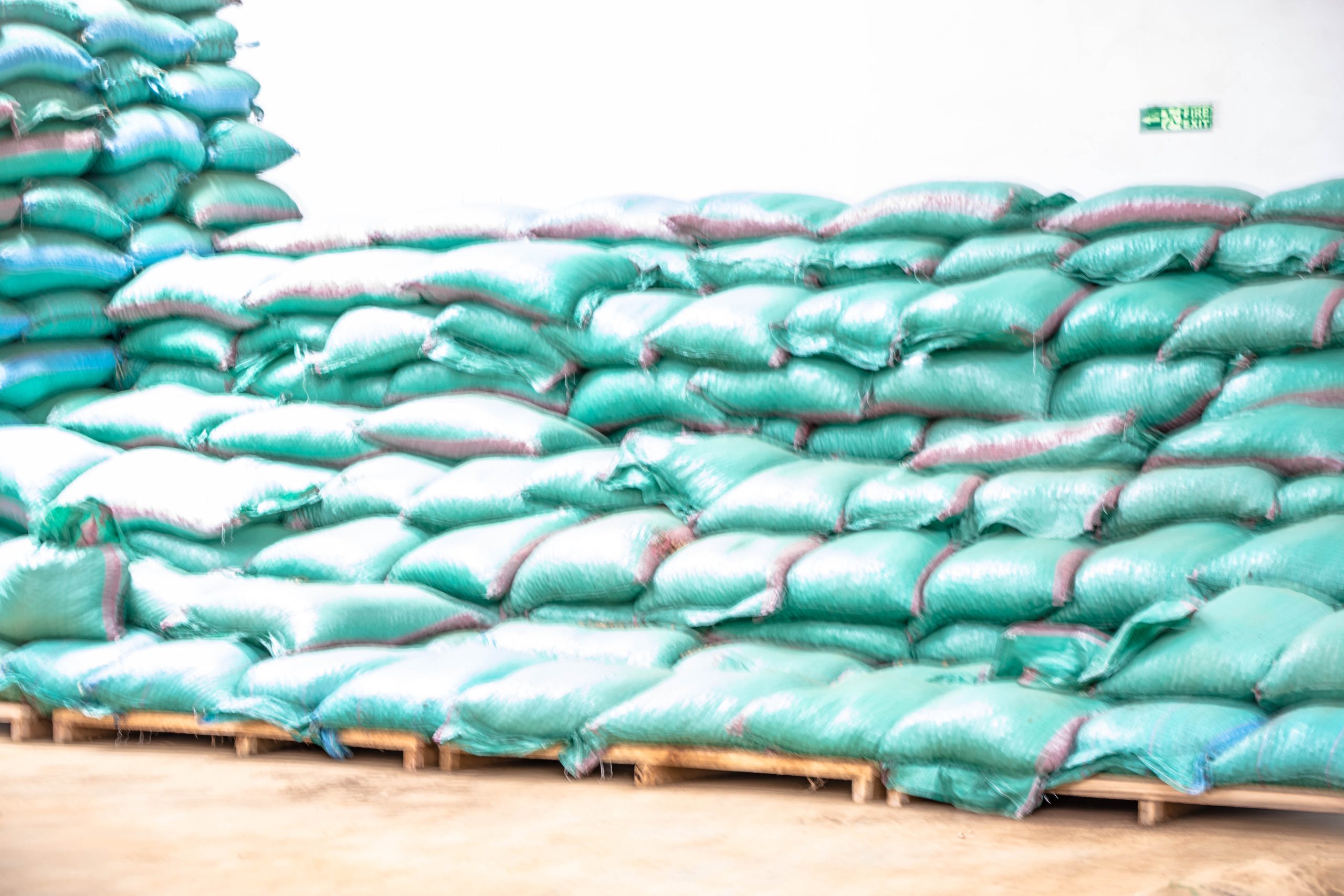
Bagged nuts awaiting processing. (Image by Amadi Kwaa Atsiaya)
Attractive Farmgate Prices
In January, Johnson Kihara, the chairman of the Nuts Traders Association of Kenya (Nutrak) was quoted as predicting low farmgate prices caused by the slowdown in kernel consumption as a result of the after-effects of the COVID-19 pandemic, in addition to the undesirable practice by farmers who harvest immature nuts, spurred by the high prices offered last year. The latter was blamed on unscrupulous processors who abet nut theft. Just how the harvesting of premature benefits the processor is an issue that Kihara didn’t address because ordinarily, one would expect to have processors in the vanguard of protecting high quality and all that appertains to it. Immature nuts don’t fetch anything better than mature nuts do. In fact, if you are conversant with macadamia processing, then you would know that the sorting process is meant to among other things, separate the immature from the mature kernel. Any well-meaning processor would therefore want the highest quality kernel, and this is derived from mature nuts. Kihara also talks of the good farmgate prices that were offered last year, and predicts a dipping in the prices this year, due to a number of factors affecting the global market. One then wonders what facts informed the decision to reverse the ban on the exportation of unprocessed nuts. If just last year, the farmers were getting good prices that inspired many of them to resort to harvesting immature nuts, how does that form the major premise in an argument that concludes that farmers are being exploited and need a savior in the name of an in-shell nut exporter?
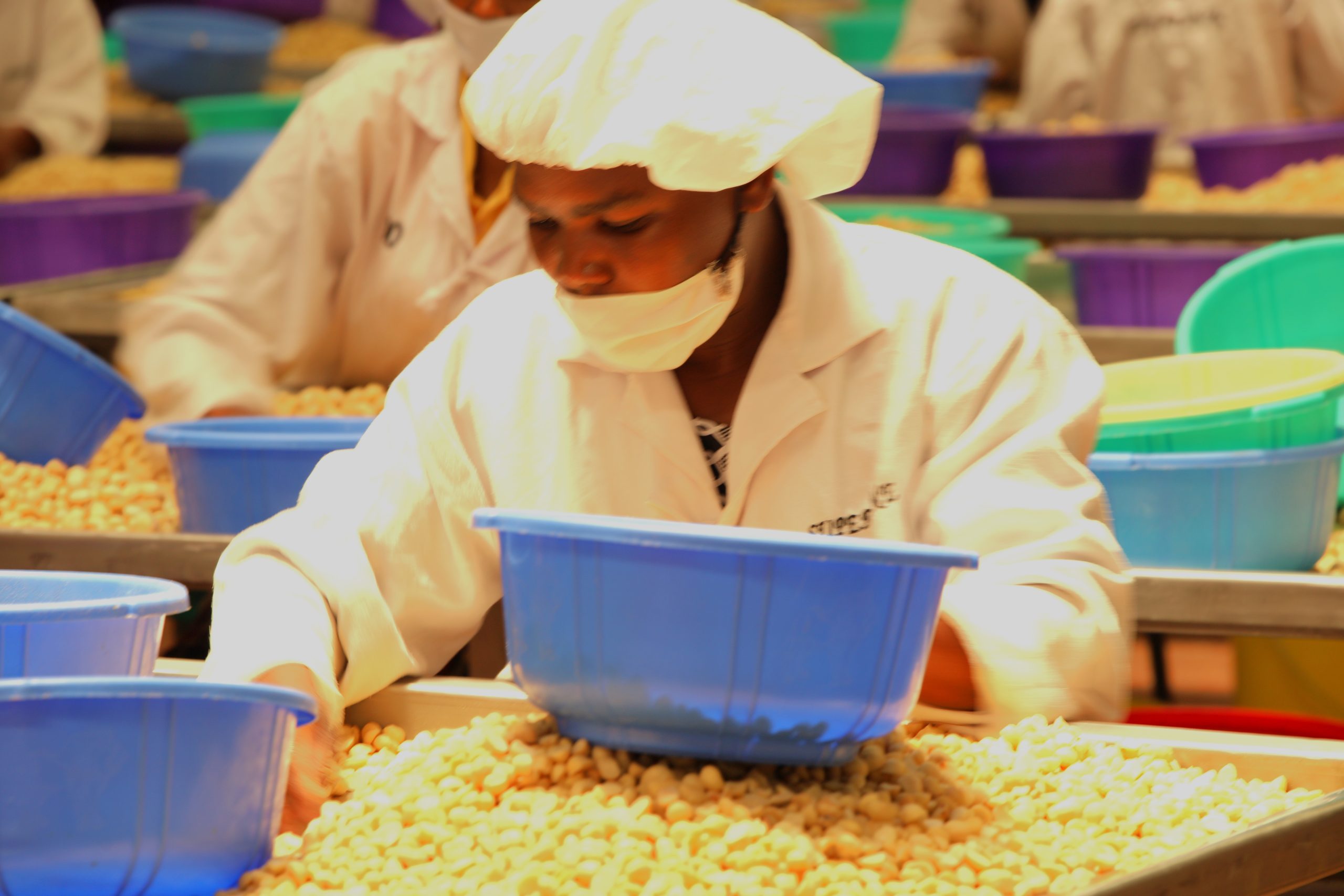
Kernel being sorted (Image by Amadi Kwaa Atsiaya)
Meaningful Engagement
What emerges out of this discourse is a clear case of a lack of structured engagement between the government and the stakeholders in the macadamia sub-sector. Media coverage and other sources paint a picture of the wall of Babel in this particular area. There seems to be no coherent and united organization around the issue. Reading some of these reports, you find an overwhelming argument to the effect that the sub-sector is dominated by six processors, who are branded exploitative. You also come across a scenario where we have a national association of nut processors, the membership of which is hardly representative of the nut processing fraternity. This was originally known as the National Association of Nut Processors of Kenya, which has since changed its name to the National Association of Nut Traders of Kenya (Nutrak).

A lady washes her hands in a food processing facility (Image by Amadi Kwaa Atsiaya)
Coalition of Six
Whereas a few reports on the census of macadamia processors in Kenya shows that there has been a phenomenal increase in the number of processors over the past decade to bring it to 40, only 6 of these are recognized as members of Nutrak. Amidst the clamor for the exportation of the whole value-addition chain to the foreign buyers, it is curious to note the cricket silence from Nutrak, as well as the other processors who are supposedly not members of the organization.
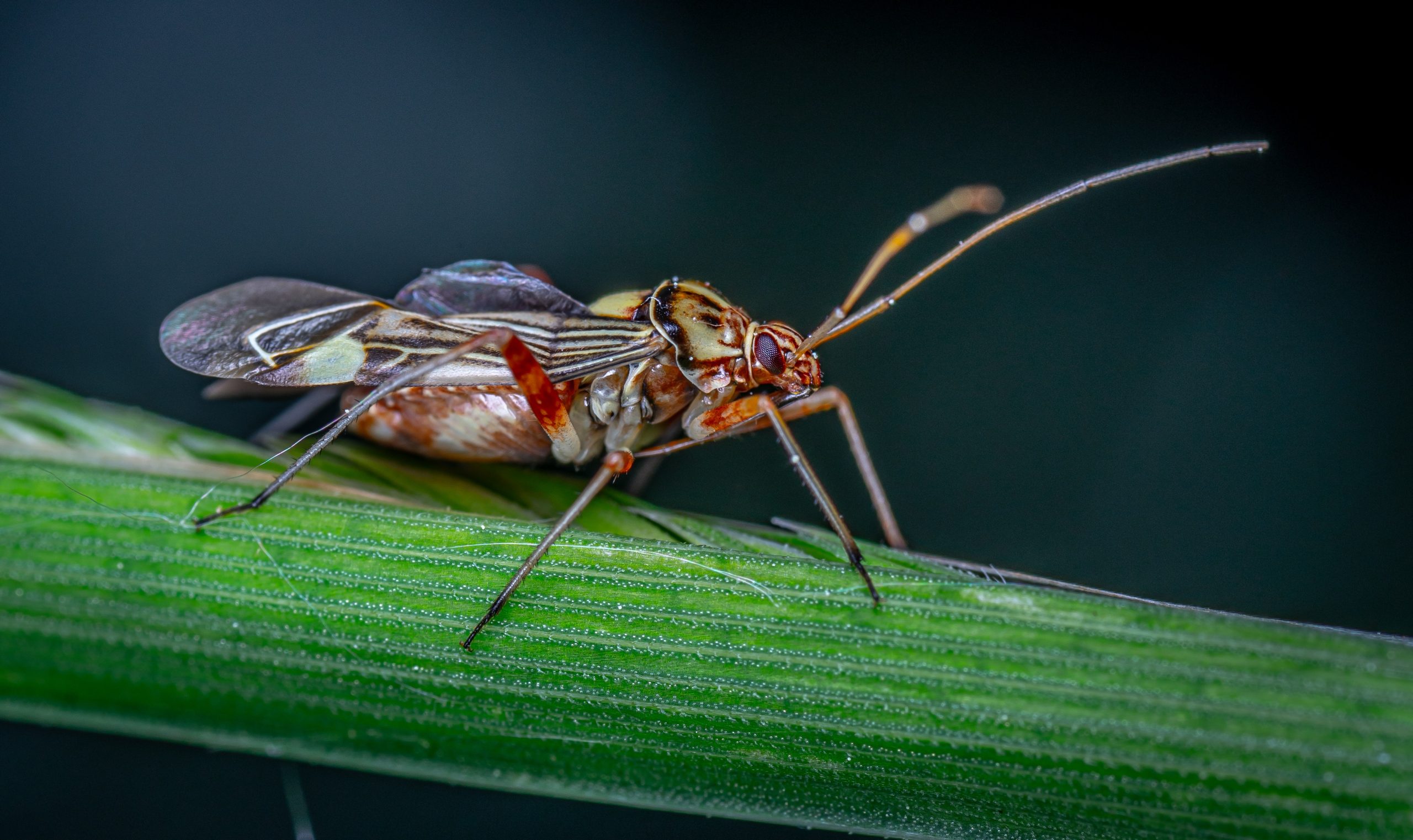
Cricket Silently Sits (Image by Egor Kamelev)
No Dialogue?
Looking at their organizational structure, Nutrak has a wide mandate which includes liaison with government institutions, and farmers. How do the government and farmers reach a situation where foreign buyers of raw nuts are being invited into the country with absolutely no input from Nutrak? In another report, John Ndirangu, Nutrak’s secretary general says that the farmers want to have one of ‘their own’ as a representative in the Agriculture and Food Agency (AFA); a government body that regulates the export of certain farm produce. This in itself is suggestive of the existence of dialogue and collaboration between the government and players in the macadamia production chain. How come the issue of farmers versus processors never features in their discourse? Does Nutrak have the gravitas to engage with the government? If so, how come its influence and mandate is not discernible at this hour of need? How come the issue at hand is not a subject of discussion in some boardroom somewhere rather than being bellowed in the media, with one of the most important parties maintaining stoic silence?

Big Mouth Little Talk (Image by Lauris Rozentals)
Permanent Solution for Temporary Problem?
Kenya’s leading business paper has reported that macadamia farmers are currently facing glut. There has been talk of market forces driving down the demand for macadamia, at least in the current season; something that is natural to all markets, and which self-corrects with time. According to this argument, what the government is doing is akin to finding a permanent solution to a temporary problem. This, especially in the face of the call by the senators to have the bill outlawing the export of raw nuts repealed in perpetuity, ostensibly to deal with ‘cartels.’ In my previous post on this topic, I pointed out that however juicy the new development could be to farmers, it is going to take a bit of time before farmers could benefit from the supposedly ‘very good’ prices promised by these foreign buyers of raw nuts. A lot needs to be done in preparation. These buyers have to obtain business licenses, establish their networks and all the necessary infrastructure to enable them procure and transport the product. It is unlikely that it would take a short period of time for the incoming inshell buyer to have these in place for immediate take-off.
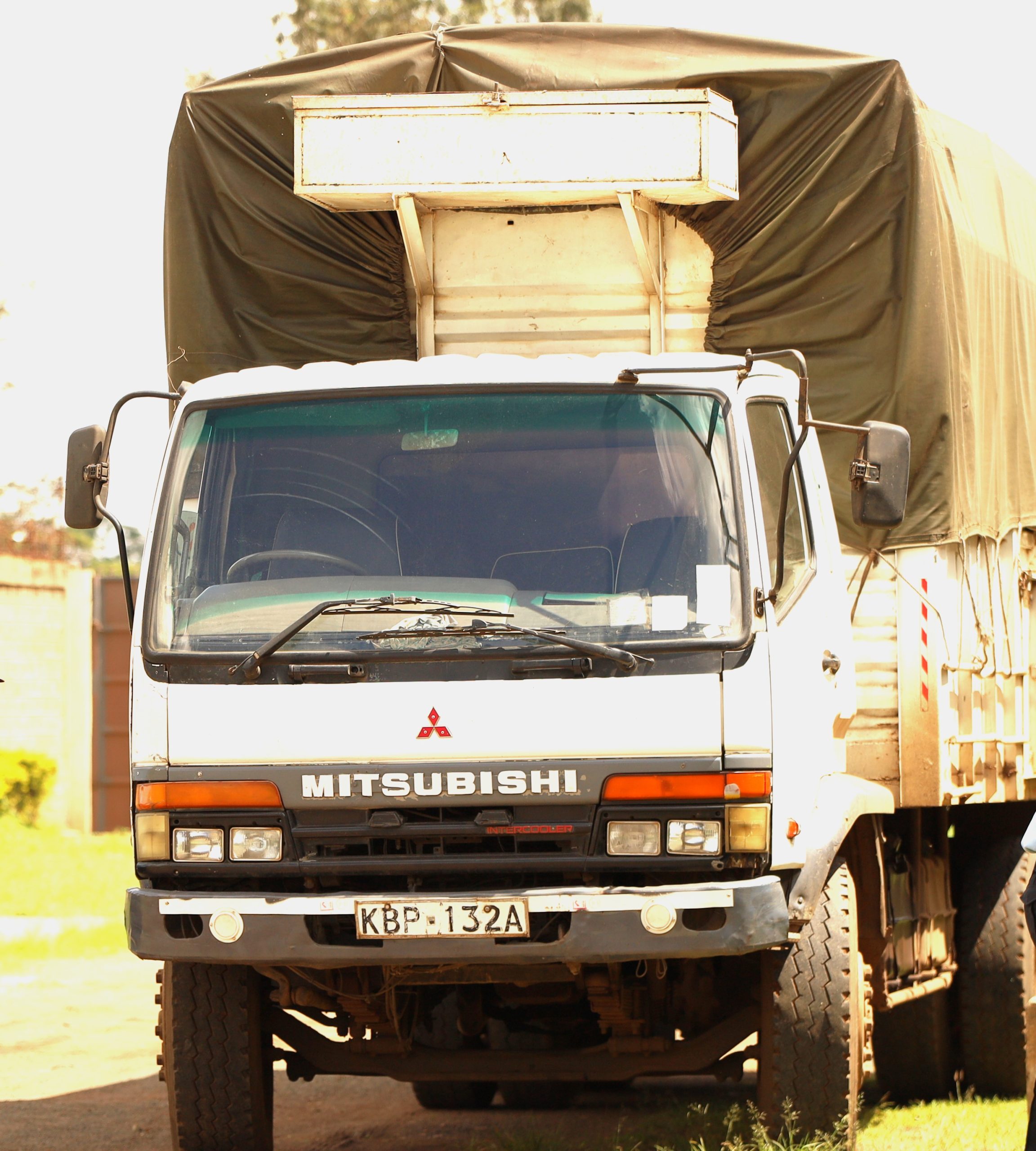
A Truck Delivers Nuts (Image by Amadi Kwaa Atsiaya)
Good Incentive?
In my previous post, one of the scenarios I saw was that where foreign buyers (especially the Chinese) would flock the country and make a clean sweep of all the nuts, leaving the local processor as a mere provider of drying services. According to John Kigo who has worked in the macadamia sub-sector for nearly ten years, the assumption that inshell nut buyers would soon be landing in droves is misguided. Kenya’s macadamia, he says, has got an average SKR (Sound Kernel Recovery) of only around 25% on the higher side. This means that for someone who is buying inshell nuts, they will be having 75% of material that is not going to translate into sound kernel. This low level of kernel recovery can be attributed to conditions in the field, where owing to the small-scale nature of our farming, there is no much intervention in terms of pest control by use of chemicals; and fertilizer use. Currently, the Chinese (the name that keeps flying around when raw nut exportation is mentioned) are purchasing a lot from South Africa and Australia. In the two countries, raw macadamia gives a higher SKR compared to Kenya. The question is, what will entice them to disproportionately buy the nuts from Kenya rather than the two markets that are already said to be providing better quality?
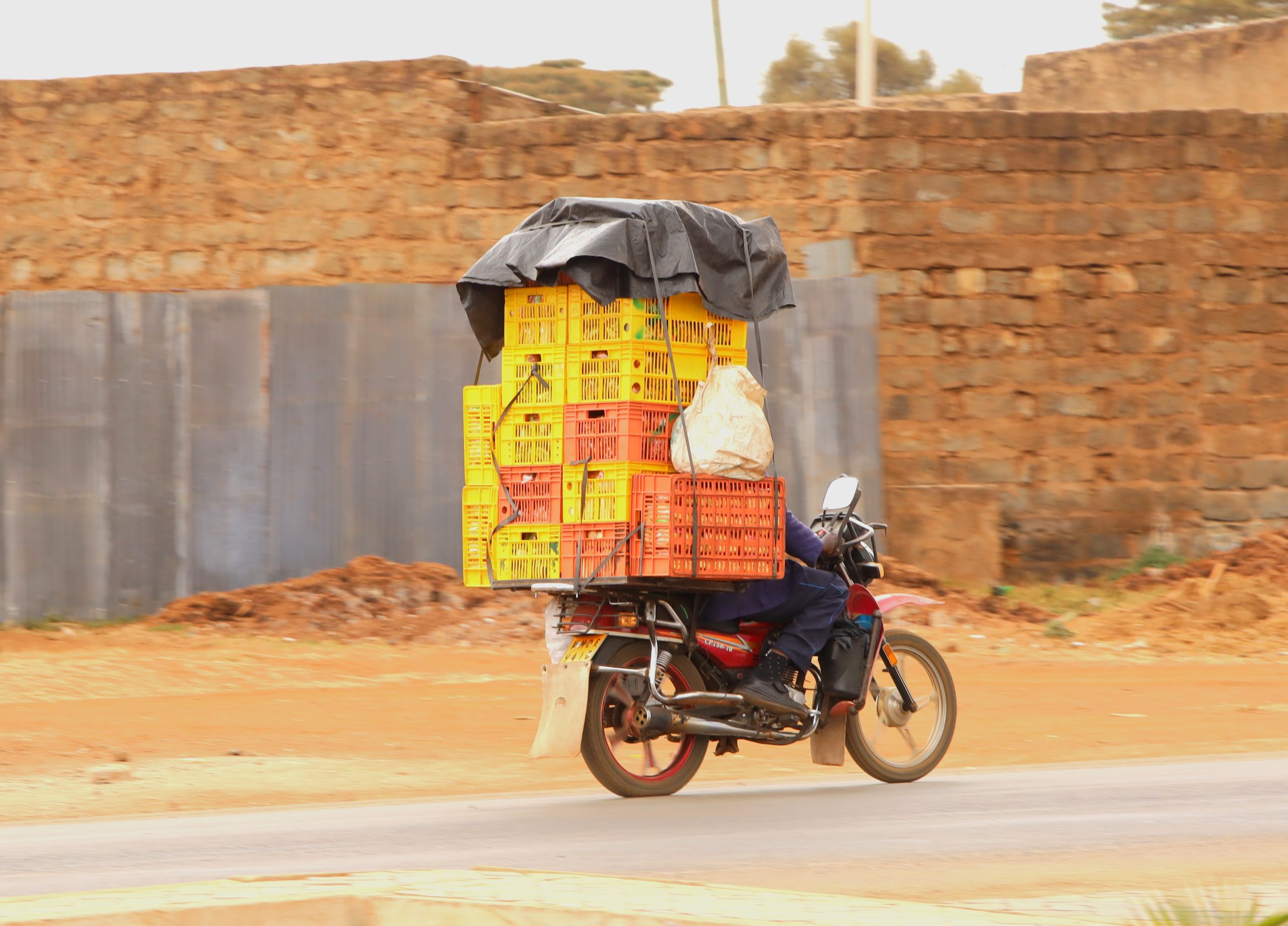
Taking it to the Market (Image by Amadi Kwaa Atsiaya)
Will Smugglers Go Mainstream?
The government could be taking a que from the reports that show that despite the ban on the exportation of nuts in shell, our unprocessed nuts still get out of the country, especially through Tanzania, with a figure of nearly 50% being floated. It is assumed that this is an indication of the popularity of our product, and that these smugglers shall be mainstream when the ban is lifted, and that their product uptake is going to rise significantly, leaving very little room for the exploitative cartels that currently operate in the mainstream market to continue oppressing farmers. By the very nature of the smuggling operation, it is difficult to reliably measure the extent of participation by the smugglers, and the exact size of the market segment these illegal operators constitute. What if they already absorb what they can take, and will take up no more than their traditional market share? Perhaps the most pertinent question shall be, how the government shall ensure that buyers purchase the nuts at a certain set price, and how that would operate in a free market like ours.

Reminder of Tower of Babel? (Image by Amadi Kwaa Atsiaya)
Biblical Parallels?
Much remains to be seen after the declaration by the cabinet secretary for trade as concerns macadamia business. For now, it is true that this is a field that draws parallels to the biblical tower of Babel, where the characters in that drama spoke in mutually unintelligible tongues. As for the fate of the relationship between the Kenyan macadamia farmer and the processor, only time will tell.






